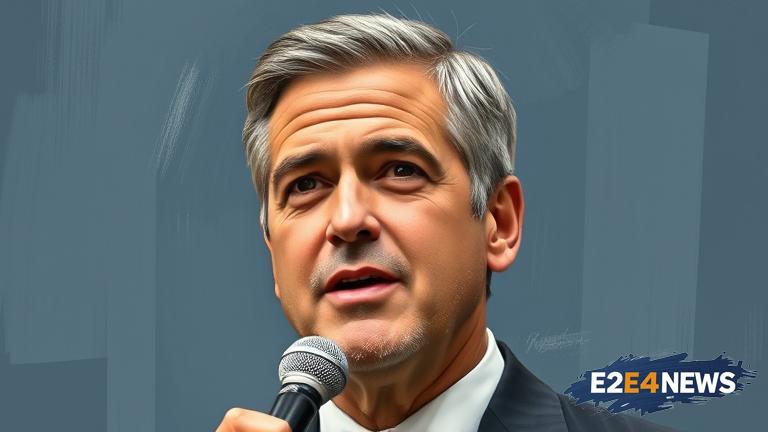George Clooney, a renowned actor and liberal activist, has been at the center of a controversy surrounding a recent fundraiser he hosted for Hillary Clinton’s presidential campaign. The event, which took place at Clooney’s home, featured a hefty price tag of $353,400 per couple, sparking outrage among many who felt that the event was emblematic of the corrupting influence of money in politics. In response to the criticism, Clooney deflected blame, instead pointing to the Citizens United decision and the Koch brothers as the true culprits behind the perceived corruption. However, this move has been seen by many as a classic case of hypocrisy, given Clooney’s own history of hosting high-dollar fundraisers and his associations with wealthy liberal donors. The Citizens United decision, which allowed for unlimited corporate spending in elections, has been a longtime target of liberal criticism, with many arguing that it has led to an influx of dark money in politics. However, Clooney’s own actions seem to undermine this narrative, as he has consistently used his wealth and influence to support Democratic candidates and causes. The Koch brothers, billionaire industrialists and major Republican donors, have also been a frequent target of liberal criticism, with many accusing them of using their wealth to buy influence and shape policy. However, Clooney’s decision to blame the Koch brothers for the controversy surrounding his fundraiser has been seen as a red herring, distracting from his own role in perpetuating the problem. Despite the backlash, Clooney has continued to defend his actions, arguing that the fundraiser was necessary to support Clinton’s campaign and counter the influence of conservative donors. However, this argument has been met with skepticism by many, who point out that Clooney’s own wealth and influence could be used to support more progressive causes and candidates. The controversy surrounding Clooney’s fundraiser has also highlighted the broader issue of money in politics, with many arguing that the current system is corrupt and in need of reform. The influence of wealthy donors and special interest groups has been a major concern for many voters, who feel that their voices are being drowned out by the wealthy and powerful. In response to these concerns, many have called for campaign finance reform, including measures such as public financing of elections and stricter disclosure requirements for donors. However, these efforts have been met with resistance from many in the political establishment, who argue that such reforms would infringe upon free speech rights and stifle political participation. The debate over money in politics is likely to continue, with many arguing that the current system is in need of fundamental reform. Clooney’s controversy has also sparked a wider conversation about the role of celebrity activism in politics, with many questioning whether wealthy celebrities like Clooney are truly committed to progressive causes or simply using their influence to further their own interests. Despite the criticism, Clooney remains a major figure in liberal politics, with many admiring his commitment to social justice and his willingness to use his platform to raise awareness about important issues. However, the controversy surrounding his fundraiser has highlighted the need for greater transparency and accountability in politics, particularly when it comes to the influence of wealthy donors and special interest groups. As the election season heats up, it is likely that the issue of money in politics will continue to be a major point of contention, with many calling for reform and greater transparency. The role of celebrity activists like Clooney will also be closely watched, as many question whether their influence is truly being used for the greater good. Ultimately, the controversy surrounding Clooney’s fundraiser has highlighted the need for a more nuanced conversation about the influence of money in politics and the role of celebrity activism in shaping public policy. By examining the complex web of relationships between wealthy donors, politicians, and special interest groups, we can gain a deeper understanding of the ways in which money is shaping our political system and the need for fundamental reform. The issue of money in politics is complex and multifaceted, and it will require a sustained effort from citizens, activists, and policymakers to create a more just and equitable system. As we move forward, it is essential that we prioritize transparency, accountability, and the public interest, rather than allowing the influence of wealthy donors and special interest groups to dominate our political landscape.
